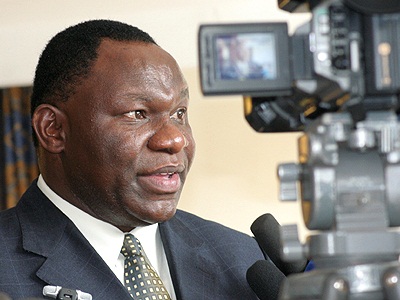End of the African telecoms boom?
The upsurge in sub-Saharan Africa mobile telecommunications seems to be subsiding as companies continue to overcrowd the market while trying to gain more clients. Sizeable investments and how businesses aim to win over customers’ favour was investigated in a new report.

As one boom ends, another begins Bitange Ndemo, secretary of the Kenyan Ministry of Information and Communications, believes. (image: file)
As one boom ends, another begins Bitange Ndemo, secretary of the Kenyan Ministry of Information and Communications, believes. (image: file)
The Morgan Stanley Research report, a global investing firm, says as firms backed by big money, like Bharti Airtel, continue improving their network coverage and decrease tariffs, Africa will become more competitive. Old timers, such as MTN and Safaricom, that have enjoyed market dominance are set to be affected the most. According to the report, the boom will be replaced by market driven innovation, new products and expanding data services.
“All companies are focusing on driving data usage, and new services to reduce churn. The most important are mobile money services like M-Pesa, where innovation take-up is high,” the report says.
“We expect mobile revenues to grow from 3,4% of gross domestic product (GDP) in 2011 to 3,7% by 2015, as we believe mobile revenue growth will outpace GDP in the next four years,” the report says.
Bitange Ndemo, secretary of the Kenyan Ministry of Information and Communications, says there is little room for new entrants in the local market.
“Unfortunately, there has been market erosion of about 20%, mostly because of competition that has seen cuts in tariffs in the sector. A new entrant would have a lot of problems as the four firms (Safaricom, Bharti Airtel, Yu Mobile, Orange) are struggling due to stiff competition,” Bitange told Daily Nation.
Industry analysts agree with his conclusion. ”What we are seeing is a correction of factors like the supernormal profits that some telecoms have been enjoying in the past,” Techie Makau, a Nairobi-based telecommunications consultant, said.
Makau added that providers now have to focus on provision, customer service and value addition. In the Kenyan market, the average price per minute fell by 80% due to competition largely from Bharti Airtel, between Sh2 and Sh4 ($0.03-0.05).
Despite the report, Bitange believes the data market is set to kick off next. Kenya’s internet penetration is only 30%, so once fibre optic cables expansion starts he believes we are set for another boom. “The data market is beginning to take shape as the fibre optic network continues to expand,” he said, adding: “this will see a lot of consumption of broadband… and that is what the companies should be looking at.”
Nico Gous







































